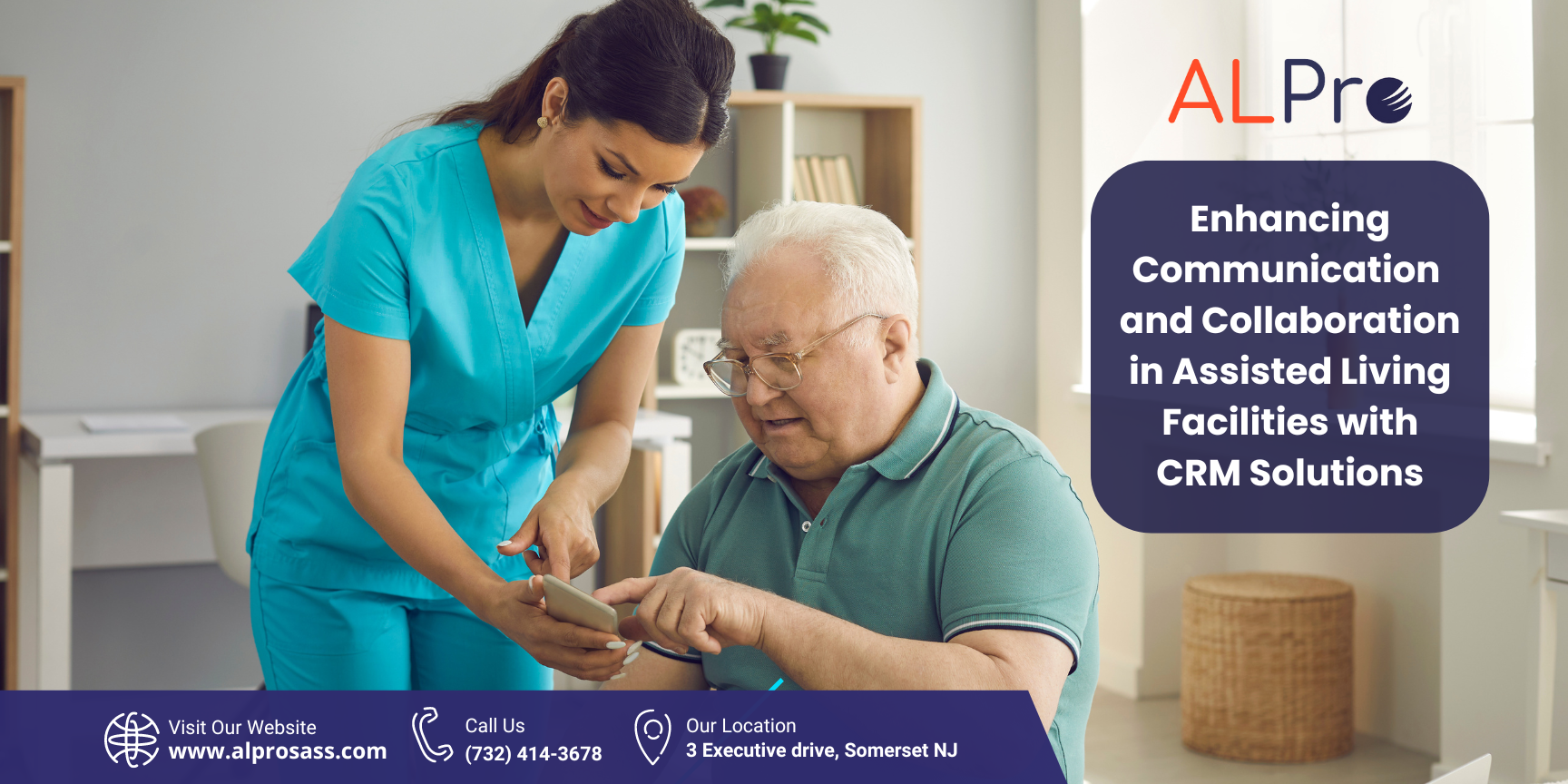Enhancing Communication and Collaboration in Assisted Living Facilities with CRM Solutions

In today's fast-paced healthcare environment, effective communication and collaboration are crucial for providing high-quality care, especially in assisted living facilities. These facilities cater to individuals who require varying degrees of assistance with daily activities, making it imperative for caregivers, healthcare providers, and administrators to work seamlessly together. One of the most powerful tools for achieving this is a Customer Relationship Management (CRM) system. Though traditionally associated with sales and customer service industries, CRMs are increasingly adopted in healthcare settings, including assisted living facilities, to streamline operations, improve communication, and foster collaboration.
The Role of CRM in Assisted Living FacilitiesAt its core, a CRM system is designed to analyse and manage interactions with current and potential clients. In assisted living, CRMs can be adapted to manage resident information, track interactions between staff and residents, schedule appointments, and ensure all stakeholders can access up-to-date information. This centralized approach helps minimize errors, improve efficiency, and enhance the overall quality of care.
Improving Communication with CRMsCentralized Information Hub: CRMs serve as a centralized repository for all resident-related information, including medical histories, care plans, and personal preferences. This ensures that everyone involved in a resident's care can reduce the risk of miscommunication by access the same information. Whether a new nurse is coming on shift, or a doctor needs to review a patient's history, the CRM provides quick access to the necessary data.
Streamlined Communication Channels: CRMs can integrate with various communication tools like email, SMS, and internal messaging platforms. This allows staff to communicate more effectively, whether on-site or working remotely. For instance, a nurse can quickly send a message to a doctor through the CRM, or family members can be updated on a resident's condition via automated emails or texts, ensuring everyone stays informed.
Automated Notifications and Alerts: Timely communication is vital in assisted living facilities. CRMs can be configured to send automated alerts and notifications to staff about important tasks, upcoming appointments, or changes in a resident's condition. This reduces the chances of missed appointments or overlooked tasks, thereby enhancing the overall quality of care.
Integrated Care Plans: One significant advantage of using a CRM in an assisted living facility is the ability to create and manage integrated care plans. These plans can be shared among all caregivers, doctors, and family members, ensuring that everyone is on the same page regarding a resident's care. This collaborative approach helps provide consistent and personalized care to each resident.
Task Management and Assignment: CRMs allow for efficient task management, enabling administrators to assign tasks to specific team members and track their completion. This ensures that the appropriate personnel perform all necessary activities on time. The transparency provided by the CRM fosters accountability and teamwork among staff.
Interdepartmental Collaboration: Assisted living facilities often involve multiple departments, including medical, dietary, housekeeping, and administrative teams. A CRM facilitates seamless collaboration between these departments by allowing them to share relevant information and coordinate activities efficiently. For example, suppose a resident has a specific dietary requirement. In that case, the dietary team can easily access this information through the CRM, ensuring that the resident's needs are met without any communication gaps.
The implementation of a CRM system in assisted living facilities benefits the staff and significantly enhances the experience for residents and their families. With improved communication and collaboration, residents receive more personalized and attentive care. Family members, often anxious about their loved ones' well-being, can stay informed and involved through regular updates and easy access to their relative's care information.
Integrating CRM systems into assisted living facilities is a game-changer in improving communication and collaboration. By centralizing information, streamlining communication channels, and fostering interdepartmental collaboration, CRMs help ensure that residents receive the highest quality of care. As the healthcare industry evolves, adopting CRM systems in assisted living facilities will likely become standard, driving better outcomes for residents, staff, and families.
ALPro's CRM: A Game Changer for Assisted Living FacilitiesALPro's CRM system is specifically designed to meet assisted living facilities' unique needs, enhancing operational efficiency and resident care. By providing a user-friendly interface, ALPro enables staff to easily access and update resident information, track care plans, and manage appointments. This streamlined access to data reduces administrative burdens and allows caregivers to focus more on providing personalized care. The CRM's robust analytics capabilities empower administrators to monitor performance metrics and identify areas for improvement, ensuring that the facility operates at its highest potential. With features tailored to the assisted living environment, ALPro's CRM fosters a culture of accountability and responsiveness among staff, ultimately leading to better resident outcomes.
Moreover, ALPro's CRM enhances communication and collaboration among various departments within assisted living facilities. By integrating seamlessly with existing communication tools, the CRM allows for real-time updates and notifications, ensuring that all team members are informed about changes in a resident's condition or care requirements. This interconnectedness is vital when multiple caregivers may be involved in a resident's care. For instance, if a dietary change is necessary due to a health issue, the dietary team can quickly access and act on this information through the CRM, preventing any lapses in care. By breaking down silos between departments, ALPro's CRM not only improves the quality of care provided but also enhances the overall experience for residents and their families, who can feel confident that their loved ones are receiving coordinated and attentive support.
